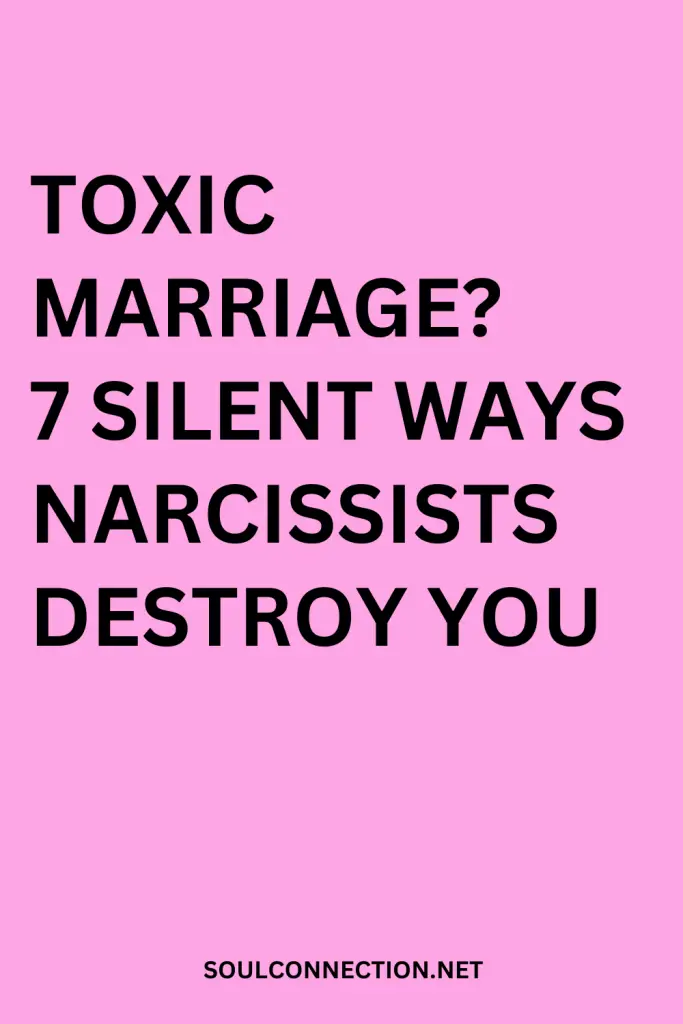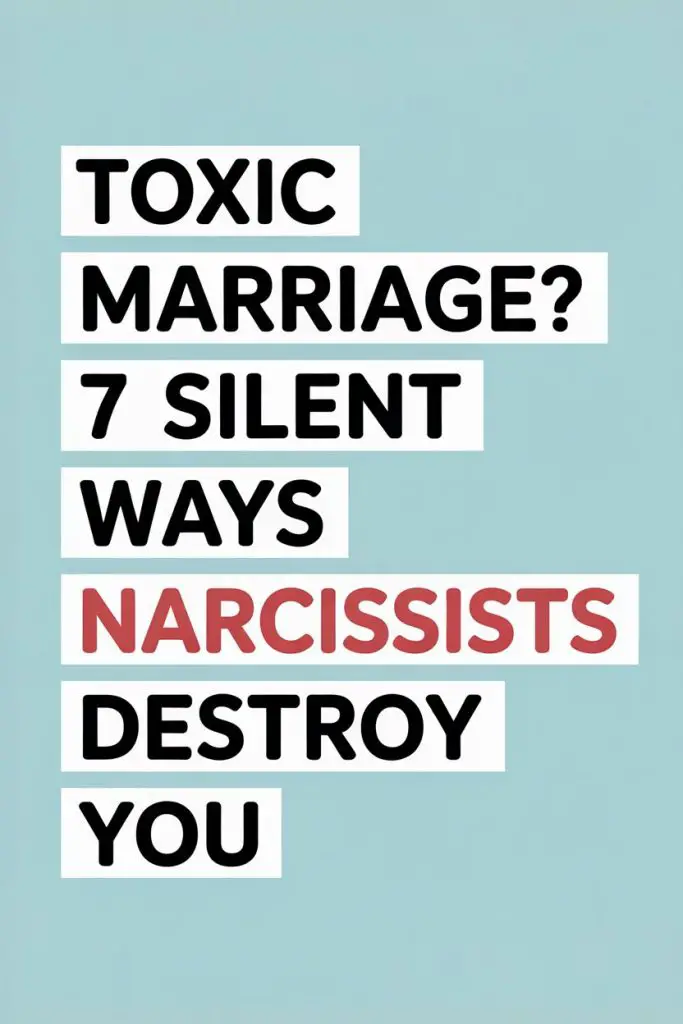Narcissists don’t need a sledgehammer to wreck a relationship—just a good supply of insidious, quiet tricks and a partner who keeps giving them the benefit of the doubt.
When love turns toxic, it rarely shouts. It whispers, undermines, and leaves you wondering whether you’re the mad one.
If you ever find yourself questioning your reality more than your Wi-Fi connection, you might just be dealing with more than garden-variety marital strife.
Here are seven covert ways narcissists wear you down—one silent jab at a time.
1. Shifting Sands Gaslighting
Ever try to explain something that happened, only to be told you’ve misremembered, misunderstood, or simply made it up? That’s gaslighting: a narcissist’s favourite magic trick.
One minute you’re certain about what was said; the next, you’re scrambling to double-check your own memory.
Over time, the world starts to feel like an Escher painting—nothing lines up. Your gut says something’s off, but the narcissist’s persistent denial and subtle scoffing leave you doubting yourself instead.
Sound familiar? If you find yourself apologising for things you’re not even sure happened, or second-guessing your own sanity, you’re not losing the plot. Someone else is rewriting it.
2. Emotional Starvation (With a Side of Breadcrumbs)
A narcissist’s affection is like those weird, intermittent bus schedules in small towns: you never know when—or if—it’ll show up. At first, you might get a little warmth, a compliment, or even a grand gesture.
But just when you relax and think, “Maybe things are looking up,” the emotional rug gets yanked from under you.
This on-again, off-again attention leaves you craving the next morsel of approval. It’s not accidental—it’s the narcissist’s way of keeping the power in their corner.
You become a detective, hyper-analyzing every signal, desperate for connection, while they sit comfortably in the driver’s seat, window rolled up.
3. Eroding Self-Esteem Through Subtle Insults
No one likes a blunt instrument. Narcissists prefer a slow, corrosive drip: backhanded compliments, “jokes” that sting, or critiques hidden as “helpful feedback.” The intention?
To chip away at your confidence until you’re convinced you couldn’t organise a two-car parade, let alone survive on your own.
You might hear things like, “Aren’t you lucky to have me?” or “Not everyone would put up with your quirks.” It’s death by one thousand paper cuts—and the worst part?
The outside world often sees them as charming, leaving you feeling isolated and hypersensitive.
4. Isolation Disguised as Protection
At first, it’s flattering. “Your friends don’t understand you like I do.” “Your sister’s just jealous.” The narcissist paints themselves as your sole safe harbour, the only one who truly gets it.
Before you clock what’s happening, your social circle shrinks like a wool jumper in hot water.
You stop reaching out to mates for fear of “betraying” your partner or hearing, “Why are you telling them our business?” Slowly, the world narrows to just you and the narcissist—a cosy prison.
When your phone buzzes less and less, or you find yourself editing every story to avoid drama at home, it’s not just coincidence. It’s classic narcissistic playbook.
5. Moving the Goalposts
Ever feel like you’re living in an endless game of whack-a-mole, where the rules change whenever you start to get ahead? Narcissists excel at shifting expectations.
What made them happy yesterday leaves them ice-cold today. That thing you did last week that earned a smile? Now, apparently, it’s wrong.
You work yourself ragged, chasing approval, thinking if you get it just right, you’ll finally win their love or respect. Spoiler alert: the goalposts will always move. It’s not about you—it’s about control.
The more you try, the less you’re sure of what’s expected. Exhausting, isn’t it?
6. The Silent Treatment Olympics
If stonewalling were an Olympic sport, narcissists would have more gold than Michael Phelps. When they’re displeased (or just bored), you’re met with icy glares, dramatic sighs, or a full-on vanishing act.
Communication evaporates, leaving you tap-dancing around the tension in the hope of thawing the chill.
The silent treatment isn’t just moody pouting—it’s psychological warfare.
It teaches you to walk on eggshells, makes you feel unworthy of attention, and encourages you to apologise for things you didn’t even do just to restore “peace.” (Peace, in this case, means their comfort, not yours.)
7. Weaponizing Your Vulnerabilities
That thing you shared in confidence—the childhood insecurity, the work stress, the private fear? With a narcissist, personal confessions become ammunition.
When arguments flare, suddenly your deepest worries are thrown back in your face, spun to make you feel weak, irrational, or unlovable.
It’s a cruel twist: intimacy becomes a liability instead of a bond. Over time, you learn to clam up, share less, and build walls—which is precisely what the narcissist wants.
Vulnerability, once a bridge, becomes a trap.
Reclaiming Your Sanity
If any of these silent saboteurs are familiar, you’re not alone—and you’re not broken. Narcissists are experts at turning loving partners into doubters, shadow versions of themselves, or even full-time peacekeepers.
Here’s the good news: awareness is your ticket out of the maze.
Start by keeping a journal (even if it’s just a few lines in your phone) to track patterns. Confide in someone you trust—preferably someone outside the narcissist’s orbit.
If you’re feeling brave, consider speaking to a therapist who knows their stuff when it comes to narcissistic abuse.
Above all, don’t buy the lie that you’re “too sensitive,” “overreacting,” or “imagining things.” Your feelings are real, and your story matters.
Marriage should be a partnership, not a one-person demolition crew. You’re allowed to set boundaries, take up space, and expect respect—not just crumbs, but the whole bakery.
Your sanity is worth fighting for—and you never have to apologize for wanting a relationship that nourishes, rather than destroys, your spirit.


